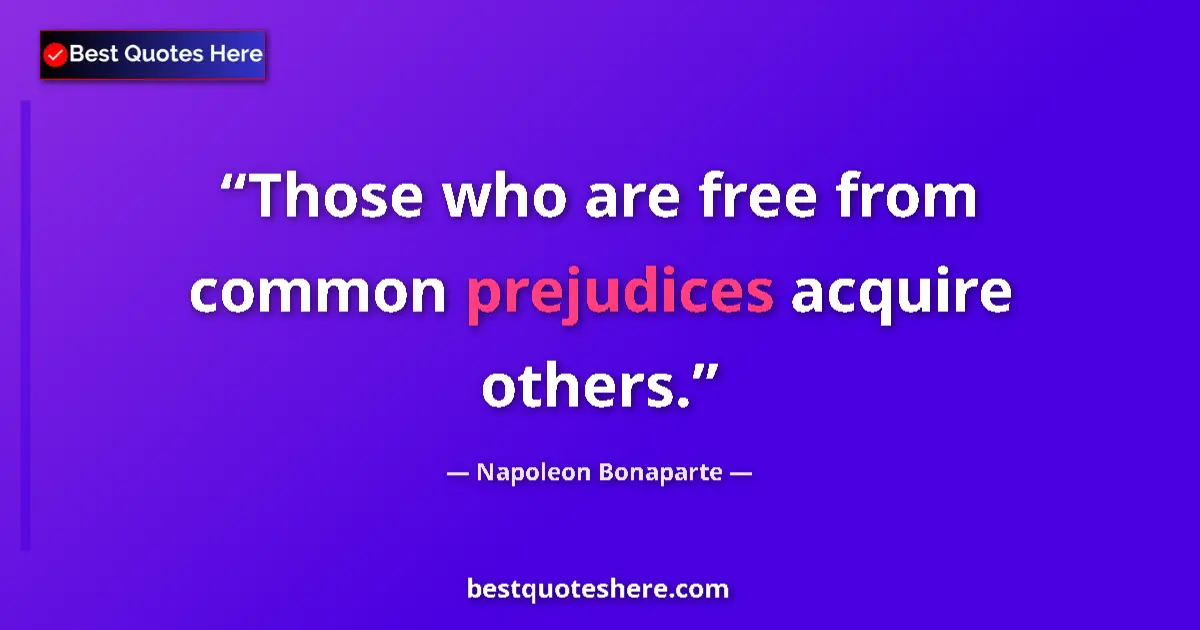"Those who are free from common prejudices..." - Quote by Napoleon Bonaparte
Those who are free from common prejudices acquire others.

More by Napoleon Bonaparte
“Mankind's worst enemy is fear of work”
“I drink Champagne when I win, to celebrate...and I drink Champagne when I lose, to console myself.”
“In a battle, as in a siege, the art consists in concentrating very heavy fire on a particular point. The line of battle once established, the one who has the ability to concentrate an unlooked for mass of artillery suddenly and unexpectedly on one of these points is sure to carry the day.”
More on Prejudice
“The plague of racism is insidious, entering into our minds as smoothly and quietly and invisibly as floating airborne microbes enter into our bodies to find lifelong purchase in our bloodstreams.”
“A story went the rounds about a San Franciscan white matron who refused to sit beside a Negro civilian on the streetcar, even after he made room for her on the seat. Her explanation was that she would not sit beside a draft dodger who was a Negro as well. She added that the least he could do was fight for his country the way her son was fighting on Iwo Jima. The story said that the man pulled his body away from the window to show an armless sleeve. He said quietly and with great dignity, "Then ask your son to look around for my arm, which I left over there.”
“There are some natures which never grow large enough to speak out and say a bad act is a bad act, until they have inquired into the politics or the nationality of the man who did it.”
More on Human Nature
“If a man sets out to hate all the miserable creatures he meets, he will not have much energy left for anything else; whereas he can despise them, one and all, with the greatest ease.”
“It is known, to the force of a single pound weight, what the engine will do; but, not all the calculators of the National Debt can tell me the capacity for good or evil, for love or hatred, for patriotism or discontent, for the decomposition of virtue into vice, or the reverse.”
“The strongest symptom of wisdom in man is his being sensible of his own follies.”